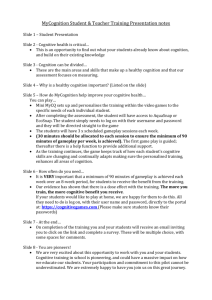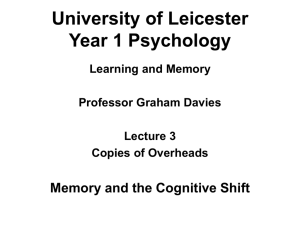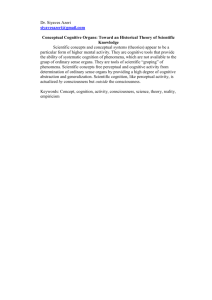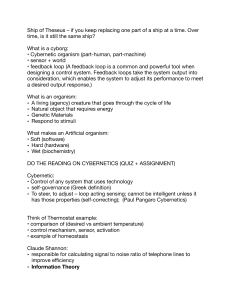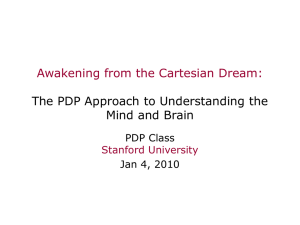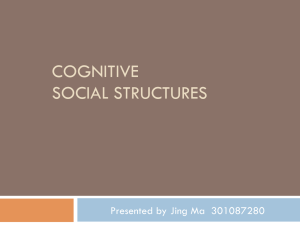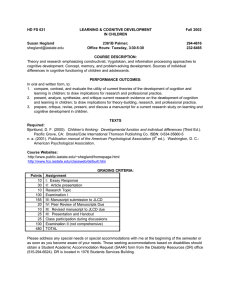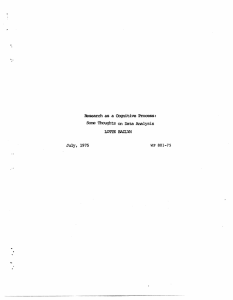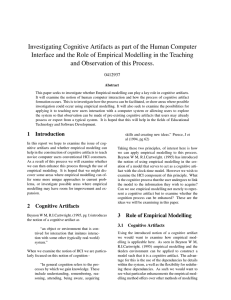Cognitive Chapter 1
advertisement
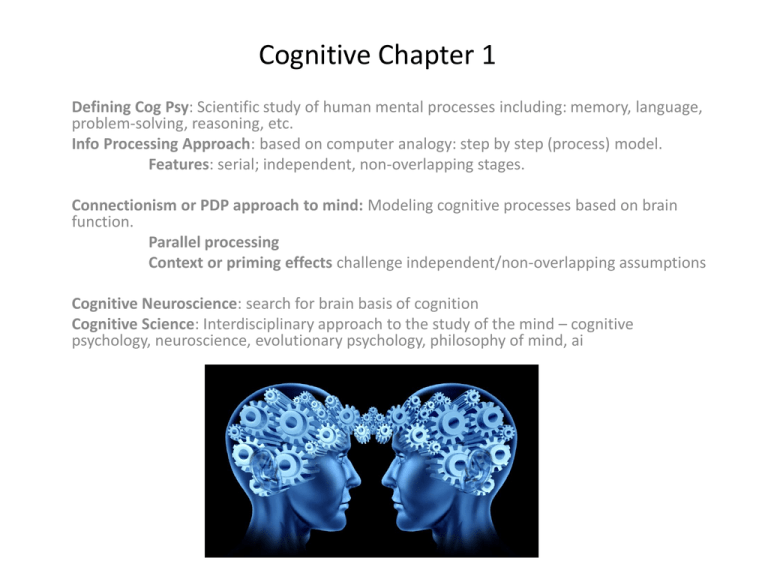
Cognitive Chapter 1 Defining Cog Psy: Scientific study of human mental processes including: memory, language, problem-solving, reasoning, etc. Info Processing Approach: based on computer analogy: step by step (process) model. Features: serial; independent, non-overlapping stages. Connectionism or PDP approach to mind: Modeling cognitive processes based on brain function. Parallel processing Context or priming effects challenge independent/non-overlapping assumptions Cognitive Neuroscience: search for brain basis of cognition Cognitive Science: Interdisciplinary approach to the study of the mind – cognitive psychology, neuroscience, evolutionary psychology, philosophy of mind, ai Three boxes of memory: Example of Information Processing Approach (A Process Model) Pandemonium: early PDP processing model History of Cognitive Psychology Aristotle & Augustine • Aristotle: empirical approach to understanding; tabla rasa approach to mind Augustine: empirical approach to memory Wundt & Titchener Wilhelm Wundt: introspection, emphasized sensation, attention, and perception Edward Titchener: structuralism, an objective description of mental experience Ebbinghaus & James H. V. Ebbinghaus: early studies on memory William James: leader of functionalist school, emphasized the adaptive nature of cognition. Emergence of Behaviorism: enter the “black box” B. F. Skinner: only observable phenomena are scientific • John Watson and the dominance of behaviorism 1900-1950 WWII: Human/Machine interactions • • • Channel capacity: how much info can be processed? Computer analogy: Do machines think like humans or do humans think like machines? Development of empirical measures of cognition, for example: reaction time Cognitive revolution: 1956 • MIT symposium: birth of AI George Miller: magical #7 Noam Chomsky: linguistics Newell & Simon: problemsolving Jerome Bruner: categorization



